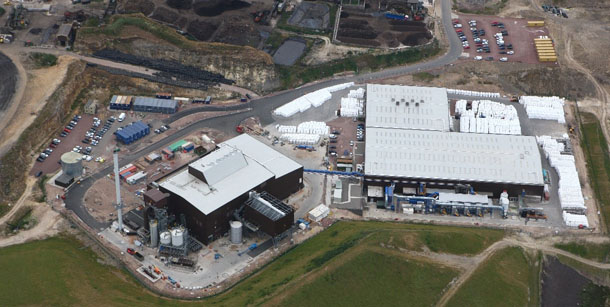Zero Waste Scotland (ZWS) has revised its report assessing the impact of “burning municipal waste in Scotland”, to reflect that emissions from energy from waste (EfW) plants are 27% lower than landfill, as opposed to the 15% previously published.
ZWS said that there was an error in its calculations which has been brought to its attention after receiving “several key pieces of feedback”. It also made several other alterations to the report in wake of feedback from stakeholders.
The move was welcomed by the Environmental Services Association (ESA), but it hit out at ZWS for taking around nine months to make the changes.
ZWS warned “the magnitude and direction of the original results remain largely unchanged”.
Municipal waste
Published in October 2020, the report studied emissions from six EfW plants and found small changes in municipal waste composition could push EfW above landfill in generating climate change emissions (see letsrecycle.com story).
It found that turning residual municipal waste in EfW plants in Scotland in 2018 had an average carbon intensity of 509 gCO2/kWh. It added that in terms of composition, if the proportion of plastic in residual municipal waste increases from 15% to 17%, greenhouse emissions per tonne for incinerators rises to the same level as landfill.
However, ZWS says whilst the carbon intensity results are unchanged, “there is a change to the results showing carbon impact (tCO2e/tonne) of incineration and landfill. This means that the carbon impact of incineration is 27% lower than landfill, compared to 15% in the October study”.
The report was complied by Kimberley Pratt and Michael Lengahan and was peer reviewed, and funded by the Scottish Government and the European Union.
Changes
ZWS published a summary of changes and revised the report to reflect the new figures.
Alongside the revision on the differences in carbon emissions between landfill and EfW, it also revised it’s assessment of mechanical biological treatment, which was talked up in the original report.
It says “additional clarity” has now been provided noting the “hypothetical nature of this scenario and the regulatory, financial and practical barriers that would have to be overcome for this to be realised”.
ZWS added: “We have added further sensitivity analysis showing the impact of biogenic (e.g. food/wood) waste composition changes on the results”.
However, the government-funded body added that neither incineration nor landfill are desired outcomes for materials. The circular economy principles of prevention, reuse, remanufacture and recycling should be exhausted before disposal is considered, ZWS said.
It added: “The carbon intensity of EfW plants operating in Scotland in 2018 was higher than alternative energy sources. Converting these plants to combined heat and power systems would lower their carbon intensity”.
‘Undermining’
While welcoming the revisions, executive director of the ESA, Jacob Hayler, said the “erroneous” report has been in circulation for more than nine months and cited in debates, which he said has “undermined” confidence in the technology.
“We hope that those who might have been influenced by this will reflect on the revised outcomes”
Mr Hayler said: “We are pleased ZWS has now corrected the significant errors in its original report following technical rebuttals from the ESA and Fichtner, as well as concern from range of stakeholders across the industry. The corrected report now falls into line with the industry consensus that energy recovery remains a lower-carbon alternative to landfill for the disposal of residual waste.
“The ESA’s recently published net zero strategy sets out a clear roadmap for eliminating greenhouse gas emissions from our sector’s activities and de-carbonising residual waste treatment is an integral part of this. In accordance with our strategy, we agree with ZWS’s conclusions that reducing the plastic content of residual waste and exploring carbon capture and storage for remaining energy recovery emissions represents the best longer-term solution for reducing the carbon impact of residual waste treatment.
“We hope that those who might have been influenced by this will reflect on the revised outcomes.”
The post ZWS revises critical incineration report appeared first on letsrecycle.com.
Source: letsrecycle.com Waste Managment



